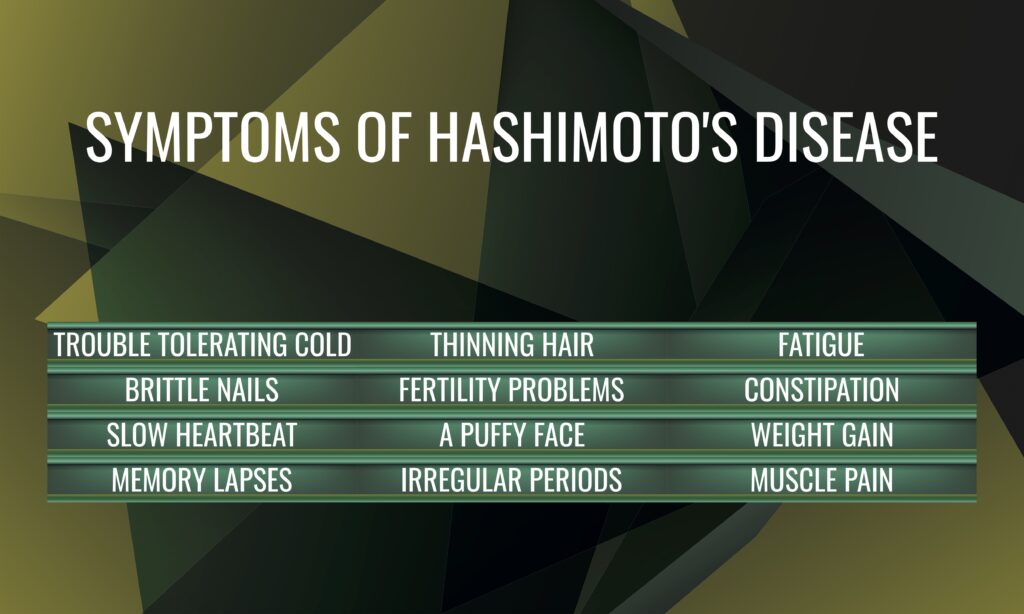What's On This Page?
ToggleHashimoto’s Thyroiditis, an autoimmune thyroid disorder, stands as the most common cause of hypothyroidism in the United States, affecting about 5 out of every 100 people.
This condition occurs when the immune system mistakenly attacks your thyroid gland, leading to inflammation and cytokine storm. It leads to high cellular peroxide formation too, which is why your catalase enzyme (produced by your liver) is important. To understand more about the connection between catalase an thyroid disease, read my other article, Catalase Neutralizes Peroxide and Offers 3 Healing Benefits
Hashimoto’s leads to an inability to produce sufficient thyroid hormones. Symptoms of Hashimoto’s can vary widely -and change daily- but commonly include fatigue, weight gain, sensitivity to cold, constipation, dry skin, and hair loss. Its prevalence points to a significant health concern, emphasizing the need for awareness and effective management strategies. Sometimes a goiter occurs too.
 A fun fact about Hashimoto’s Thyroiditis is that it was the first disease to be recognized as an autoimmune disorder. It was discovered by a Japanese physician named Hakaru Hashimoto in 1912.
A fun fact about Hashimoto’s Thyroiditis is that it was the first disease to be recognized as an autoimmune disorder. It was discovered by a Japanese physician named Hakaru Hashimoto in 1912.
Dr. Hashimoto described the disease in a paper where he detailed an unusual case of goiter (enlarged thyroid) accompanied by unique histological features. This was (at least for 1912) a very significant milestone in the field of immunology and endocrinology.
This discovery not only led to a deeper understanding of autoimmune diseases, which as you know is where the body’s immune system mistakenly attacks its own tissues… but it also paved the way for the diagnosis and treatment of similar conditions. So, Hashimoto’s Thyroiditis holds a special place in medical history as the condition that opened the door to the concept of autoimmunity that we know today!
Goiters and Hashimoto’s
I wouldn’t call a goiter “devastating” because many people have them, and they can shrink. Often they are due to the deficiency of natural iodine which you can supplement with. If you have a goiter, please don’t take that as advice, consult a medical doctor about what to do.
Anyway, the point is that goiters can occur with Hashimoto’s Thyroiditis. It just means an enlarged thyroid gland and is a relatively common symptom associated with Hashimoto’s. The autoimmune attack on your thyroid gland can lead to inflammation. This damage can cause the thyroid gland to enlarge in an attempt to compensate for its decreased ability to produce thyroid hormones, resulting in a goiter.
Not everyone with Hashimoto’s will develop a goiter, but it is a possibility, and the size of it varies. It is visible at the base of the neck. Treatment for a goiter caused by Hashimoto’s often involves thyroid hormone replacement meds (and/or iodine).
Understanding the Complications of Hashimoto’s
When Hashimoto’s disease progresses, it often leads to hypothyroidism, which can trigger a cascade of health issues if left untreated. Let’s explore the more devastating complications:
- High Cholesterol: Hypothyroidism can raise your cholesterol levels, increasing the risk of heart disease. That’s one devastating outcome that can be managed appropriately if you know. Natural treatments include adopting a diet rich in fruits, vegetables, whole grains, and healthy fats. Alternative medicine may help if you’re shy about statins. Read my recent article, 7 Natural Ways to Manage Cholesterol: Beyond Oreos. Conventional treatments might involve statins or other cholesterol-lowering medications.
- Heart Disease and Heart Failure: The strain hypothyroidism places on the heart can lead to heart disease and even heart failure. Natural treatments focus on a heart-healthy lifestyle, including regular exercise, stress management, and natural supplements such as CoQ10, taurine and others. Shortness of breath (with little exertion) is a common first sign of heart disease.
Take a few minutes to read my other article, Revealing 15 Causes of Shortness of Breath. Conventional treatments may include medications to control heart rate, blood pressure, and cholesterol levels, alongside lifestyle modifications.
- High Blood Pressure: An underactive thyroid can increase blood pressure, further risking heart health. Natural treatments include reducing sodium intake, increasing physical activity, and managing stress. There are natural ACE Inhibitors too, read my other article, 8 Natural ACE Inhibitors for Heart Health. Conventional treatments often involve blood pressure-lowering medications and lifestyle adjustments.
- Heavy or Irregular Menstrual Periods: When the thyroid is under siege and not functioning optimally, it can lead to heavy or irregular periods, a direct consequence of hormonal imbalances triggered by this autoimmune disorder. These menstrual irregularities can, in turn, complicate matters of fertility, making it challenging for women with Hashimoto’s to conceive. Conventional treatments like oral contraceptives or fertility treatments. Natural remedies that are sometimes employed include MAGNESIUM, vitamin D or selenium.
- Myxedema: A rare but severe form of hypothyroidism, where the skin swells up, and may thicken. It can cause low body temperature (termed hypothermia) and/or shock. This is not common, it’s usually seen in advanced, untreated cases. Myxedema can lead to life-threatening symptoms because it can lead to coma. It requires immediate conventional treatment in a hospital setting, including thyroid hormone medication and palliative, supportive care.
Diet and Hashimoto’s
Diet is not the focus of this blog, however I just want to say a quick thing. Histamine-containing foods can trigger an inflammatory response, which might exacerbate the autoimmune attack on the thyroid gland in individuals with Hashimoto’s. This could potentially lead to an increase in symptoms associated with the condition. If you want to learn more download my ebook called Hashi No-Nos.
Managing Hashimoto’s and its complications involves more than just medication. Lifestyle changes, such as adopting a selenium-rich diet, ensuring adequate Vitamin D intake, and stress-reducing practices like yoga and meditation, can support thyroid health and overall well-being.
Regular monitoring and collaboration with a healthcare provider are crucial for adjusting treatment plans as needed. Dietary supplements can also play a role, especially antioxidants.
Hashimoto’s vs. Hypothyroidism: Understanding the Difference
While Hashimoto’s Thyroiditis and hypothyroidism are closely related, they are not the same. Hashimoto’s is an autoimmune disorder that often leads to hypothyroidism, characterized by the immune system’s attack on the thyroid gland. In contrast, hypothyroidism refers specifically to the condition of having an underactive thyroid, which can result from various causes, including Hashimoto’s.
Hypothyroidism may be due to poor conversion of T4 to T3, or it may be due to iodine deficiency, or intake of goitrogenic superfood green drinks and foods. This is the reason I created Yummy Greens® which is formerly called Thyroid Greens because it is thyroid-friendly. Why? Because it is the world’s first and only goitrogen-free dedicated superfood drink mix for people with thyroid illness.
Understanding this distinction is vital for effective treatment and management of these conditions. I will elaborate more on this in a future blog, and in the meantime, you can learn more by reading The Case Against Kale.

Suzy Cohen, has been a licensed pharmacist for over 30 years and believes the best approach to chronic illness is a combination of natural medicine and conventional. She founded her own dietary supplement company specializing in custom-formulas, some of which have patents. With a special focus on functional medicine, thyroid health and drug nutrient depletion, Suzy is the author of several related books including Thyroid Healthy, Drug Muggers, Diabetes Without Drugs, and a nationally syndicated column.




